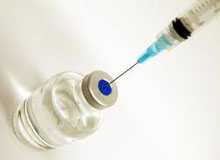Blog

Pertussis Can Be Fatal: Get Vaccinated
I’ve heard so many reasons from parents, both in my office as well as on the playground, why they choose not to vaccinate their kids: “I’m terrified that they will be that one kid with a rare metabolic disorder who becomes autistic FROM the vaccine”. “She’s so little. I don’t want her body exposed to all of those foreign chemicals”. “We live in a healthy home. Our kids aren’t exposed to those diseases anyway”.
OK, fair enough. I get the autistic scares. I really do. As a doctor who relies on evidence-based medicine, and whose practice is in an academic setting, I, too, am horrified by the still unexplained astronomical rise in the chances of having an autistic child. It’s justifiably terrifying. Therefore, if there’s a chance, albeit without scientific data to back that chance, to lessen this likelihood, then why not pursue that option. As a parent, I can feel that terror to the core. If those diseases against which we are vaccinating are so rare, but autism is so common, why not err on the side of caution, and prevent the common one? But as a physician, I can clearly see the flaw in this logic. While autism is common, it has been documented in countless studies that vaccines are not the cause. And while the vaccine-preventing diseases are rare, many of them are deadly.
Although no study has actually proven the vaccine/autism association, the skepticism remains. There have been reports of children with rare disorders in metabolism, where vaccines, viruses, or other illnesses can ‘trigger’ autistic features. But these isolated findings are not reason enough to wipe out the life-saving value of vaccines.
And what about the death scares? Nobody on the playground seems to be talking about this. But in the medical community, we’re the ones who are now terrified for our patients. Many of us are old enough have seen patients either die or suffer greatly from illnesses caused by Hemophilus influenza, Measles, Mumps, Rubella, Diphtheria, Polio, and Pneumococcus. These are now all preventable, and my students learn about them from textbooks, not from patients. But Pertussis, or ‘whooping cough’, is back. And it, like the other diseases, is absolutely preventable. And, like the other diseases, pertussis can be fatal. And did I mention it’s preventable? I’ll say it again: Preventable. But everyone has to be on board with this, or some kids may die. Many already have, and I’m not referring to the ones in the history books.
Here’s how it works: Pertussis immunization is part of the DTaP (Diphtheria, Tetanus, Pertussis) vaccine. It is given at ages two months, four months, and six months. Boosters are then given at 15 to 18 months, and again at age four to six years. But even with this seemingly heavy load of vaccines in the first months, your child is not protected from pertussis until roughly age seven months. Why? It takes several boosters as well as time before the immunity to this disease kicks in, even if your child has received the vaccines on schedule. But here’s the new data: the immunity to pertussis fades, sometime between ages 10 and 15 years. The upshot? We’re now seeing tweens and teens get pertussis, and they’re spreading it to the babies.
Let’s say you bring your 5 month old to an elementary school event, to watch your kindergartner sing the school anthem all by himself. The sixth grader in the audience starts to cough. Two days later this 12-year-old is diagnosed with pertussis. He gets treated with antibiotics, misses four days of school, has a nasty hacking cough for a few weeks, but is no worse for the wear. But what about your 5 month old? If she starts coughing, the pertussis picture will be a bit different. Every year, infants are hospitalized, and some die, from pertussis. This is no joke. And frankly, it’s not fair. While vaccination may be an individual decision, it is also a team effort. Older kids, teenagers, adults, and even pregnant women who are or will be exposed to young infants, need to be re-immunized. Period.
To learn more about pertussis, please check out: http://www.soundsofpertussis.com/#/homepage








